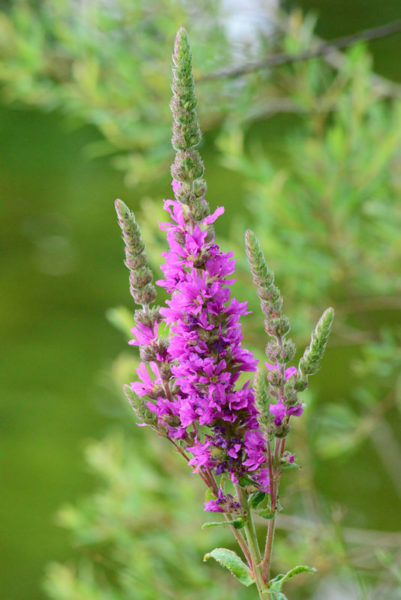Purple loosestrife (Lythrum salicaria)

Purple loosestrife, also known as “Proud Henry”, is a herbaceous perennial of the loosestrife family. It is undemanding and grows in damp places.
The flowering twig tips with their reddish-purple flowers contain the valuable substances of loosestrife. These are mainly tannins, phenolic carboxylic acids and flavonoids as well as anthocyanidins (flower pigments).
Already in ancient times, the tannin drug was used externally for eczema and internally for diarrhoea. In the Middle Ages, the plant was also used to tan leather and impregnate wood. Folklore appreciates the medicinal herb for its astringent, bactericidal and haemostatic effect in acute and chronic gastrointestinal inflammations.
Nowadays, purple loosestrife finds a new field of application in the livestock sector, as it has a beneficial effect on the composition of the intestinal flora in pigs. In addition, anti-inflammatory effects in the intestinal tract of piglets have been demonstrated.
Studies from the Mediterranean region indicate that purple loosestrife probably also has a protective effect against diabetes in humans.